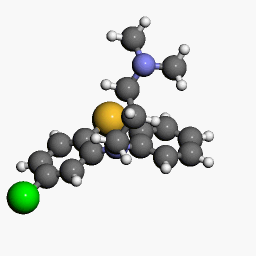A fascinating book about a revolutionary medical discovery that has saved and treated millions of lives, was adopted with a lot of resistance and made by a most unlikely, simple man who was a master observer. Lithium is still the gold standard for bipolar disorder that affects millions of people, and it’s the unlikeliest of drugs - a simple ion that is abundant in the earth’s crust and is used in applications as diverse as iPhone batteries and hydrogen bombs. Even before the breakthrough antipsychotic drug chlorpromazine, lithium signaled the dawn of modern psychopharmacology in which chemical substances replaced Freudian psychoanalysis and primitive methods like electro-convulsive therapy as the first line of treatment for mental disorders.
The book describes how an unassuming Australian psychiatrist and Japanese POW named John Cade found out lithium’s profound effects on manic-depressive patients using a hunch and serendipity (which is better called “non-linear thinking”), some scattered historical evidence, primitive equipment (he kept urine samples in his family fridge) and a few guinea pigs. And then it describes how Danish psychiatrists like Mogens Schou had to fight uphill battles to convince the medical community that not only was lithium a completely revolutionary drug but also a prophylactic one.
The debates on lithium’s efficacy got personal at times but also shed light on how some of our most successful drugs did not always emerge from the most rigorous clinical trials, and how ethics can sometimes trump the design of these trials (for instance, many doctors find it unethical to continue to give patients a placebo if a therapy is found to be as immediately and powerfully impactful as lithium was). It is also a sobering lesson to realize in this era of multimillion dollar biotech companies and academic labs, how some of the most transformative therapies we know were discovered by lone individuals working with simple equipment and an unfettered mind.
Thanks to the work of these pioneers, lithium is still the gold standard, and it has saved countless lives from unbearable agony and debilitation, significantly because of its preventive effects. Patients who had been debilitated by manic-depression for decades showed an almost magical and permanent remission. Perhaps the most humane effect of lithium therapy was in drastically reducing the rate of suicides in bipolar patients in whom the rate is 10 to 20 times higher compared to the general population.
The book ends with some illuminating commentary about why lithium is still not used often in the US, largely because as a common natural substance it is unpatentable and therefore does not lend itself to Big Pharma’s aggressive marketing campaigns. The common medication for treating bipolar disorder in the US is valproate combined with other drugs, but these don't come without side effects.
Stunningly, even after decades of use we still don’t know exactly how it works, partly because we also don’t know the exact causes of bipolar disorder. Unlike most psychiatric drugs, lithium clearly has general, systemic effects, and this makes its mechanism of action difficult to figure out. Somewhat contrary to this fact, it strangely also seems to be unique efficacious in treating manic-depression and not other psychiatric problems. What could account for this paradoxical mix of general systemic effects and efficacy in a very specific disorder? There are no doubt many hidden surprises hidden in future lithium research, but it all started with an Australian doctor acting on a simple hunch, derived from treating patients in a POW camp in World War 2, that a deficiency of something must be causing manic-depressive illness.
I highly recommended this book, both as scientific history and as a unique example of a groundbreaking medical discovery.

















